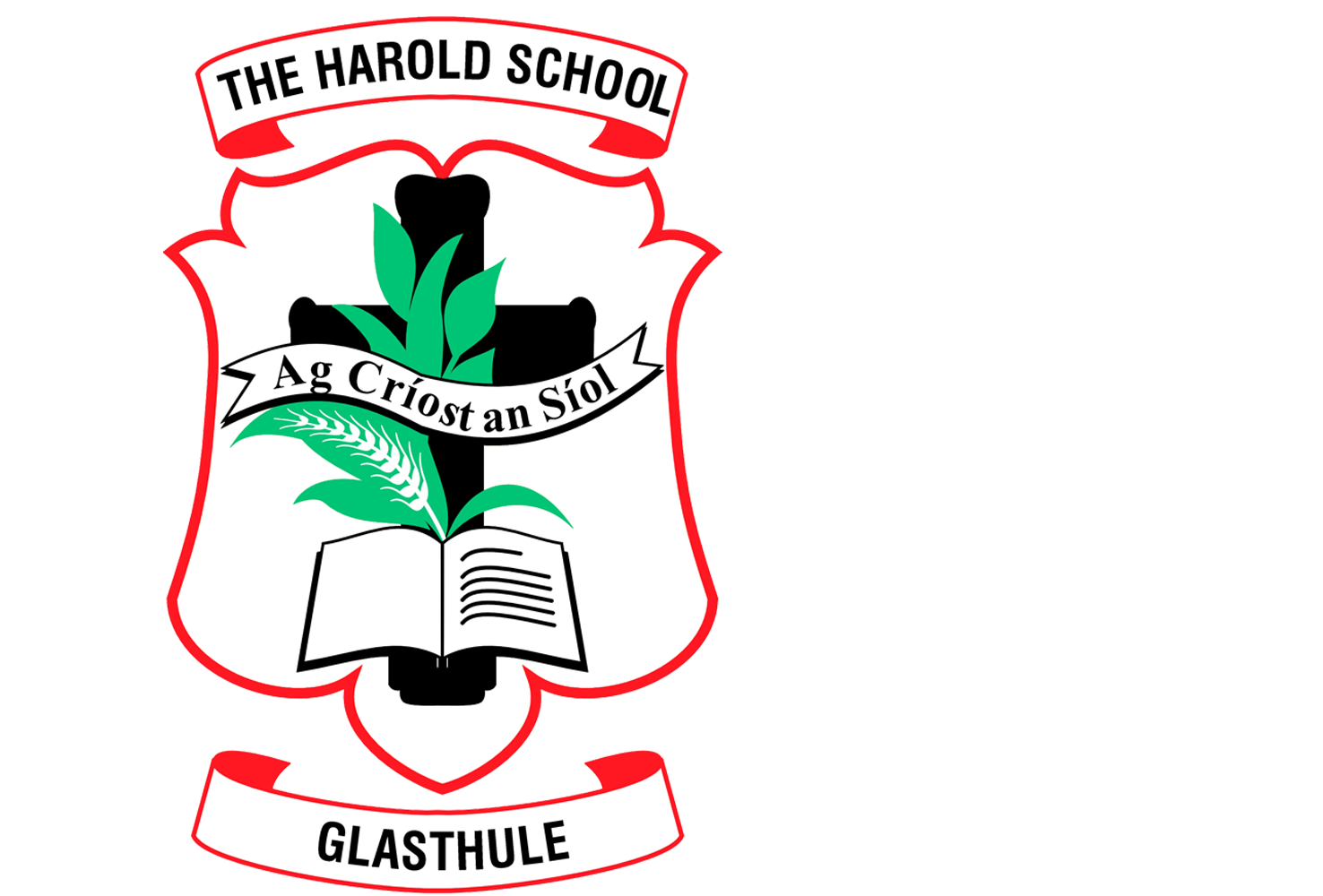Curriculum
In essence the curriculum is the focal pivot around which the school hinges
A strong emphasis is placed on Literacy and Numeracy, which we see as essential life skills. All subjects, as laid down by the Department of Education and Skills are taught. Of course we are aware that education in itself is about developing the whole person.
We at The Harold School believe that a stimulating and structured learning environment is imperative for the academic success of our students.
We constantly endeavour to cater for the individual needs of all the children, with emphasis on their spiritual, emotional, physical and intellectual development
Primary Language Curriculum
(Gaeilge and English)
The Literacy Curriculum is structured to offer children a total language experience in which oral language, reading and writing are fully integrated. Emphasis is placed on phonics in all classes.
Senior Infants and 1st classes do an intensive programme every year. Our School Self-Evaluation Report and School Improvement Plan for Literacy are available on the website.
Environmental & Scientific Education (S.E.S.E.)
(History, Geography and Science)
Science: The four strands of the science curriculum are Living Things, Energy and Forces, Materials and Environmental Awareness.
History: Emphasis on local history and a focus on the skills of the historian.
Geography: The three strands are Human Environments, Natural Environments and
Environmental Awareness and Care: Children are taken on school field trips to encourage learning
Mathematics
The five strands in the mathematics curriculum are Number, Algebra, Shape and Space, Measures and Data. Calculators are introduced in 4th class.
Arts Education
(Visual Arts, Music and Drama)
Visual Arts: The six strands are Drawing, Paint, Print, Clay Construction, Fabric and Fibre.
Music: The three strands are Listening/Responding, Performing and Composing.
5th and 6th are particicpating in the National Children’s Choir this year.
The senior school presents a Christmas Pageant every year while junior classes perform in their Christmas Concerts.
Drama: A visiting drama teacher works with the children developing their ability to explore, make and reflect on drama.
Physical Education
The six strands are: Athletics, Dance, Gymnastics, Games, Outdoor and Adventure activities and Aquatics. We use the Pres School Hall, Yards, Hudson Road Field and Dun Laoghaire Rathdown County Council Park for P.E. Visiting teachers take classes for P.E., Gymnastics and Dancing.
Swimming for senior classes takes place in the pool in Castlepark School.
Social, Personal and Health Education (S.P.H.E.)
This subject area includes R.S.E. (Relationships and Sexuality education) Stay Safe, and The Substance Abuse Prevention Programme. We hold talks for parents and pupils throughout the year on different aspects of safety, e.g. Cyber Bullying, Fire Safety, Road Safety, Hallowe’en Safety. These are advertised to parents well in advance.
ICT& Digital Learning in The Harold
We are very proud of recent developments in the area of digital technology in our school. All classrooms are equipped with interactive Smart Boards, Visualisers and lap tops. They are used to complement teaching and learning in our school. Through their use children also become proficient in use of computers. We have 30 junior and 30 senior iPads which enables the children to develop their IT skills each week. Find out more…
STEM
S…Science
T…Technology
E…Engineering
A…Arts
M…Maths
‘We believe that teaching kids to think both critically and creatively is key to the development of a society which understands and is fully engaged with the world around them, the resources on which they depend, and in planning and creating a better future’….. STEAM
Primary School Curriculum
School Report of child’s progress will be sent to parents in the middle of June.
Parent/Teacher Meetings are held in November every year, at which all aspects of your child’s development are discussed.
Programmes of study are prescribed by the Department. Assessments will be made of the child’s progress through the various instructional stages to measure their achievements. Tests such as Micra T, Sigma T. and Drumcondra Tests are administered.
Standardised testing takes place in 1st – 6th classes on designated dates in May each year.










